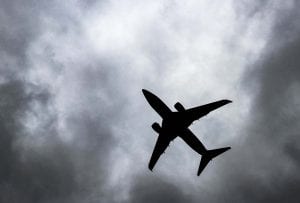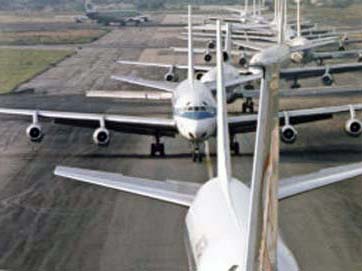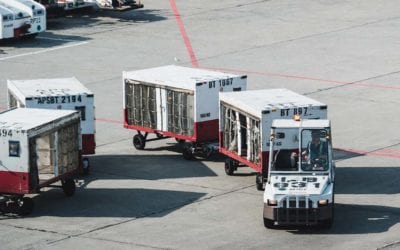Airfares can be compared across airlines on computers, but not the extra fees.
 After 9/11, COVID issues, and the recession downturns, the airlines seem to face another financial pummeling being doled out by the economy. And at the same time, as airlines are struggling, consumers are not getting any honesty in advertising as the airlines attempt to rebound.
After 9/11, COVID issues, and the recession downturns, the airlines seem to face another financial pummeling being doled out by the economy. And at the same time, as airlines are struggling, consumers are not getting any honesty in advertising as the airlines attempt to rebound.
Adding insult to injury, the airlines have stayed in business by taking donations from you, the taxpayers. Consumers, ultimately, bear the brunt of the government’s largess. Think of the massive billion-dollar bailout of the CARES Act that kept airlines afloat.
Airlines are semi-regulated today.
The airlines operate as a semi-regulated industry today. They receive financing from the government. Airlines use public facilities, and municipalities own the airports. Plus, planes soar through the skies using the publicly-owned air traffic control system. During the pandemic, no other industry enjoyed more support than airlines. All this government support comes despite the often-heard airline mantra, “Let the market decide.”
Today, consumers pay increases in many airfares. To make matters even worse, passenger taxes keep anti-consumer businesses flying. Though airfares may have been higher last summer, ancillary fees continue running rampant. The Department of Transportation (DOT), a decade after the original NPRM was floated to rein in ancillary fees, has recently announced another push toward fee transparency. This “new” transparency effort was announced with a White House flourish. Waiting more than a decade for the restart of rulemaking seems worthy of celebration.
Though early newspaper headlines claimed that airlines eliminated change fees permanently, the elimination affects only a few US airlines. Cancellation fees are still in effect (especially for basic economy fares). Seat reservation fees are still charged. Families traveling together must pay extra to sit together. And even with the change fees, only certain airfares embrace the “no change fees” rules. According to the law, even after attempts at getting on-time arrival and departure statistics published, airlines take off and land about 15 minutes late.
Consumers need honesty in advertising.
Airline consumers are not asking for much. Honesty in advertising is their desire and their need. Consumers only want to be able to discover the best price to fly through comparison shopping. This “new” Notice of Proposed Rulemaking from DOT that all airfares and ancillary fees be made public is deja vu. Hence, until this new rulemaking takes its course, consumers will never know the total cost of travel before purchasing airline travel. Then, they often have to wait until the day of travel to get the full price of flying.
The discussion about the transparency of airline costs for travel still rages since the first checked baggage fee was introduced by American Airlines in 2008. At that time, the airlines struggled to find a way to stay in business and keep from going bankrupt. These original baggage fees still stand, unreduced. Plus, the rules for change fees and basic-economy fees seem more complicated since the start of the COVID-19 period.
Consumers are only getting partial honesty in advertising.
Consumers have asked the government to do its job for the past decade — give us truth in advertising. We have succeeded in getting partial honesty over the strong objections of the aviation industry. But, after more than a decade, America’s travel planners and vacationers cannot easily see the full cost of travel.
Today, an American family cannot put their destination into a computer and say, “We choose to travel as a family with two teenagers and two parents from Chicago to Orlando. We will carry on four rollaboards and check two pieces of luggage. Plus, we would like to sit together on the flight. We are members of the following FF clubs, elite members of two, and can use the following credit cards. How much will it cost us to fly?”
Even with the fare-crunching power of computers, honesty in advertising seems impossible. The airlines hold their pricing data hostage to frustrate comparison shopping. Five years ago, Congress even mandated that a system allow kids 13 years old and younger to sit with an older family member during flights at no additional cost. So far, DOT has not established a family-seating rule. That’s with a law passed by Congress.

READ ALSO:
You need to learn reasonable airline etiquette
5 travel agent hotel benefits to make for a memorable staycation

Charlie Leocha is the President of Travelers United. He has been working in Washington, DC, for the past 14 years with Congress, the Department of Transportation, and industry stakeholders on travel issues. He was the first consumer representative to the Advisory Committee for Aviation Consumer Protections appointed by the Secretary of Transportation from 2012 through 2018.



